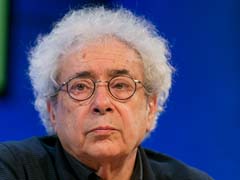The French philosopher and sociologist describes the changes undergone by public space in recent years. For him, public space is the place where political debate occurs.
Shared Spaces recorded this conversation with Luc Boltanski in February 2015 when he came to the Centre of Contemporary Culture of Barcelona (CCCB) to give the lecture “Wealth and Critique”, in the "Barcelona Debate 2015 – Wield the Word" series. Speaking from the French viewpoint and without specifying further, Boltanski identifies public space as the place in which political debate occurs, but he also emphasises how much it has changed.
He begins by warning that public space “is an extremely complicated problem nowadays”. In France, in the 1980s, public space was very important, he says. Many people understood public space as a political response in the Marxist years, and this came together with protests and claims voiced in public spaces, for example in defence of human rights and democracy.
With regard to old public space, Boltanski reveals how, when writing “The Denunciation”, he used letters written to the editor of Le Monde as one of his sources. This idea – public denunciation of injustices inflicted in public space – he suggests, explains why pamphlets and the press appeared: addressing the powers-that-be directly from a platform “located at the heart of public space” where “the people are the judge”.
Nowadays, however, it is clear that “the age in which public space was structured around the press and mass media has come to an end”. By way of example, he recalls that, until fifteen years ago, terrorists needed journalists to bring them to the world’s attention but now “they have their own means of shaping opinion with totally new means”.
As for his favourite public space, Boltanski chooses the meetings organised by the Société Louise-Michel in a 20th-arrondissement café, which has come to resemble a small cultural centre. These talks, aiming to identify the present situation of left-wing ideas, bring together intellectuals and – young and old – local residents. “One might call it public space because everyone says whatever he or she likes. The intellectual level is not always extraordinary, but I’ve rarely missed a session.”



